diplomaticourier.com
uncaptioned image from article
The Cathedral was filled to capacity. The Unity concert was sponsored and chaired by cultural diplomacy devotee Susan Carmel Lehrman, who highlighted the importance of the evening at the start: “We meet tonight to appreciate each other’s unique, as well as shared, cultures in this house of prayer for all people. Whenever well-meaning people gather together for the common good—this act in and of itself represents a prayer of authentic good will. Tonight’s celebration is also like a beautiful prayer, and it is an extension of my prayer for greater unity, peace, and understanding,” said Lehrman.
The Unity concert enjoyed the support of a long list of Washington’s top cultural organizations, including the John F. Kennedy Center for the Performing Arts, the Washington Performing Arts, the Woodrow Wilson Center’s Kennan Institute, the American-Russian Cultural Cooperation Foundation, the Carmel Institute of Russian Culture and History, and the Sustained Dialogue Institute.
The concert displayed unification found in the symphony orchestra of Russian and American music. The celebrated compositions from Russia, such as the Nutcracker Suite and the Polovtsian Dances from Prince Igor by Russian composer Aleksandr Borodin, were played in the same orchestra that performed American composer George Gershwin’s Rhapsody in Blue. The sense of union that was housed in the harmony of joined Russian and American works was also seen in the performances by Russia’s Mariinsky orchestra performing with the National Cathedral choir, organist and carillonneur.. Maestro Valery Gergiev and his orchestra of the Mariinsky Theatre in Saint Petersburg played in the house of the Washington National Cathedral, which represents a house of prayer and peace for all people.
The concert also represented a new era in foreign policy relations sparked by the new Russian Ambassador to the U.S., Anatoly Antonov. At the event, Antonov said that the concert was dedicated toward unifying cultures between the U.S. and Russia. “This concert is remarkable for the fact that it gathers under the same roof many guests representing different countries and cultures. Tonight, we are united by our passion for music. Music is a universal language that all of us understand in our souls. It has the power to bind together hearts, and to fill them with peace and hope,” said Ambassador Antonov.
Antonov, who became the Russian ambassador to the U.S. just two months ago, has become a prominent figure in mending U.S.-Russia relations. On October 31, Antonov met with U.S. Secretary of State Rex Tillerson to discuss several countries where both the U.S. and Russia have faced discord in the past. In a statement released by the Department of State, the two “discussed the defeat of ISIS in Syria and the United States’ continued commitment to the Geneva talks as the best path toward a political solution to the conflict. Other topics included countering the threat posed by North Korea and the prospects for improving our bilateral relationship.”
Case studies have indicated that Russian cultural diplomacy has been successful in mending relations in other areas, such as Europe. In a 2016 study on the effects of Russian cultural diplomacy in Europe by the University of Houston and the University of Oklahoma, researchers found that Russia was able to improve relations with several countries with “soft cultural power” in the form of literature, art, television, and music. In case studies of Russian cultural diplomacy in Ukraine and in cultural foundations throughout Europe, the study found that “understanding how soft power enabling or disabling environment can unlock better understanding of cultural and public diplomacy efforts of countries, such as Russia.” In addition, the study found that overall “countries may be quite successful in appealing to publics within specific regions of another country, in which the favorable soft power environment enables them to connect with shared cultural values.”
Soft power was in full bloom at the Concert for Unity, at a time in which the lack of a definitive political stance from the U.S. government on relations with Russia opened an opportunity for progress in joining for cultural purpose. With public dissention in the political realm, the concert exemplified a step toward fostering a better unification in culture. As the future of global politics remains unclear, the certainty of the success cultural diplomacy has on countries’ relations is an essential lesson for the future.


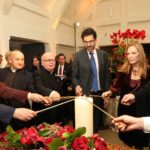
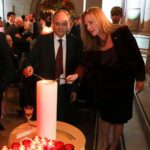


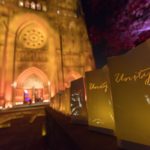
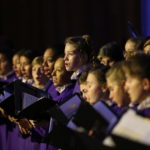
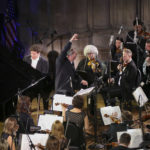
No comments:
Post a Comment